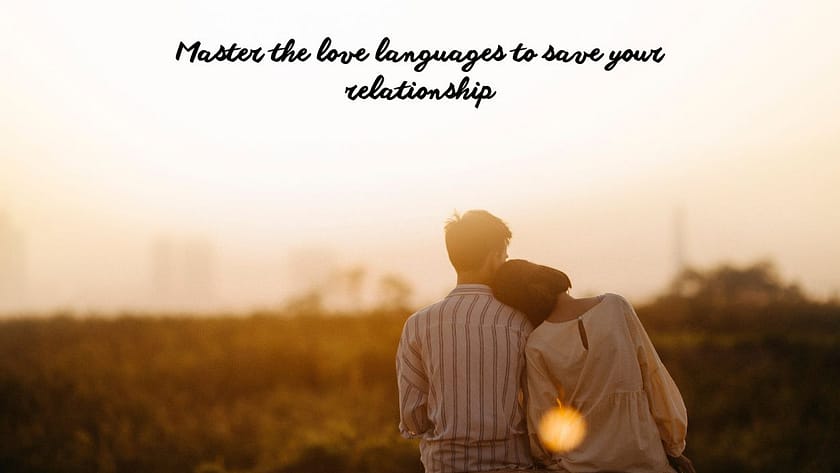Let me start with this: Love isn’t just about the big gestures, the romantic vacations, or those picture-perfect Instagram posts. It’s about the little things that make your partner feel seen, valued, and truly loved. Now, this is where love languages come in—and trust me, they’re a game-changer.
If you’ve never heard of them, love languages are the brainchild of Dr. Gary Chapman, who gave us a simple yet powerful way to understand how people express and receive love. But here’s the kicker: ignoring your partner’s love language can unintentionally sabotage your relationship.
In this blog post, I’m diving into why ignoring love languages can hurt your relationship and how to avoid those sneaky pitfalls. Whether you’re single, dating, or married, this guide is for you.
Table of Contents
What Are Love Languages Anyway?
Before we get into the juicy stuff, let’s break down what love languages are. According to Gary Chapman, there are five love languages:
- Words of Affirmation – Compliments, encouragement, and verbal expressions of love.
- Quality Time – Undivided attention and meaningful moments together.
- Gifts – Thoughtful tokens of love that show you’re thinking about them.
- Acts of Service – Doing helpful things to make their life easier.
- Physical Touch – Hugs, kisses, hand-holding, and any affectionate touch.

Each person has a primary love language, and sometimes a secondary one. Knowing this can unlock the secret to making your partner feel cherished—and who doesn’t want that?
Now, these languages give us a clear way to articulate what we need to feel loved and valued. When we ignore them, we can unknowingly communicate in ways our partners don’t understand, leading to feelings of disconnect and frustration. Imagine being in a relationship where you’re speaking English while your partner speaks French—close enough to be confusing but not clear enough to foster true understanding. Love languages can be the bridge across that gap.
What are the consequences of Ignoring Love Languages?
When I think about the emotional cost of ignoring love languages, it hits me just how much it can affect a relationship. If I don’t express love in the way my partner understands or needs, there’s a real risk of creating emotional distance, even if I’m doing everything else right. Over time, this emotional disconnect can create frustration, confusion, and even resentment. Let me explain why.
Miscommunication Leads to Misunderstanding
At first, I might not even notice that we’re speaking different love languages. I might think I’m doing everything I can—giving gifts, spending time together, or even helping out around the house. However, if my partner’s primary love language is words of affirmation, these gestures might not resonate with them in the way I hope. They may feel unloved or unappreciated, even though I’m trying my best.
I’ve learned that when we don’t express love in a way our partner understands, it leads to miscommunication. I might think they feel loved, but if I’m not speaking their love language, they might not feel seen or valued. That’s the emotional cost—it’s like I’m putting in effort but not hitting the mark.
Feelings of Neglect or Resentment
If my partner feels that I’m not meeting their emotional needs, they may start to feel neglected. This sense of neglect can grow over time, leading to feelings of isolation. I can’t tell you how many times I’ve heard people say they felt distant from their partner, not because of a lack of love, but because their love was expressed in a way that didn’t connect with them.
In my own experiences, I’ve realized that neglect doesn’t always come from neglecting to show love—it can also happen when I fail to speak my partner’s love language. It can be a subtle thing at first, but over time, it builds up. Eventually, if this pattern isn’t addressed, it can lead to bitterness, frustration, and resentment.

Feeling Unseen or Unheard
There’s a certain loneliness that comes from feeling like my partner doesn’t really “get” me. When my love language is overlooked, I begin to feel unseen. For instance, if I need physical touch but my partner is more focused on acts of service, I might start to feel like my emotional needs aren’t valid or important. This isn’t just about not getting what I want—it’s about feeling emotionally disconnected.
I’ve noticed that when this happens, I’m less likely to express my feelings openly, and my partner might do the same. This silence is dangerous because it creates a distance that can be hard to bridge later. It’s like both of us are talking past each other, and we’re both feeling more and more isolated.
Decreased Emotional Intimacy
Emotional intimacy is at the core of a strong relationship, but it’s hard to nurture intimacy when we’re not speaking the same love language. I’ve experienced this firsthand: if I’m giving my partner love in a way that doesn’t resonate with them, we both miss out on the deep connection that comes from knowing we are truly understood.
Take quality time, for example. If I’m someone who values uninterrupted moments together, but my partner’s focus is on practical gestures, like helping me with tasks (acts of service), we might both feel like we’re giving but not truly connecting. Over time, that lack of emotional intimacy can wear down the bond we share. The emotional cost of this is significant because without intimacy, the relationship starts to feel more like a routine than a partnership.
Frustration from Unmet Needs
When I’m not speaking my partner’s love language, frustration inevitably follows. I might start to feel like I’m doing everything “right” and giving 100%, but still not getting the emotional return I need. On the other side, my partner might be feeling the same frustration. If they’re giving me love in their language but I don’t recognize or respond to it, it feels like their efforts are being wasted. This constant misalignment leads to growing tension.
And the worst part? This frustration often isn’t openly discussed. I’ve found that instead of talking about what’s really going on, we might both start to withdraw, leading to more confusion and hurt feelings. If we both continue to give love in ways the other doesn’t understand, the frustration just keeps building up.
Emotional Exhaustion
All of this—miscommunication, neglect, frustration, and emotional disconnect—leads to one thing: exhaustion. Emotional exhaustion creeps in when I realize that despite my efforts, I’m not fulfilling my partner’s emotional needs, and vice versa. This isn’t about not loving each other; it’s about feeling drained from trying to give love in ways that don’t match.
Over time, this exhaustion can lead to resentment and burnout. I’ve seen relationships where the emotional fatigue becomes so overwhelming that one or both partners start to give up on the relationship altogether. This doesn’t happen overnight, but it’s a slow build, and it starts when love languages are ignored or misunderstood.
FAQs: Common Questions About Love Languages
1. Can my love language change over time?
Yes, love languages can evolve. As you experience different life stages, changes in your relationship, or personal growth, your primary love language may shift. For example, someone who once preferred physical touch may find that words of affirmation become more meaningful during a period of emotional growth. It’s important to check in with yourself and your partner periodically to stay in tune with each other’s needs.
2. What if my partner’s love language is different from mine?
Having different love languages doesn’t mean you’re not compatible; it just means you need to learn how to speak each other’s languages. Open and honest communication is key. Discuss your love languages and find ways to incorporate both into your relationship. For example, if your partner values quality time but you prefer acts of service, you might plan a date while helping them with a task.
3. Can love languages apply to non-romantic relationships?
Absolutely! Love languages aren’t just for romantic relationships—they can be applied to friendships, family dynamics, and even professional relationships. Whether it’s offering words of affirmation to a friend or showing your appreciation for a colleague through acts of service, understanding love languages helps strengthen all types of bonds.
4. What if my partner doesn’t understand my love language?
If your partner isn’t receptive or doesn’t understand your love language, it’s crucial to communicate how important it is for your emotional well-being. Be patient, and instead of expecting them to just “know,” provide examples of how you feel loved. For instance, if your love language is physical touch, explain that simple gestures like holding hands or a hug make you feel connected.
5. Is it enough to only focus on my partner’s love language?
While it’s important to speak your partner’s love language, it’s also essential to express your own needs. A relationship is a two-way street, and both partners should feel heard and understood. If you’re constantly speaking your partner’s love language without fulfilling your own, frustration can build up. Remember, mutual respect and understanding are the foundation of a healthy relationship.
Here’s the bottom line: Love languages are like a cheat code for better relationships. Ignoring them is like trying to play a video game without reading the instructions—you’ll miss out on the good stuff. When you take the time to understand and speak your partner’s love language, you’re not just showing love—you’re building a stronger, healthier connection. So, what’s your love language? Drop a comment below—I’d love to hear your story!




